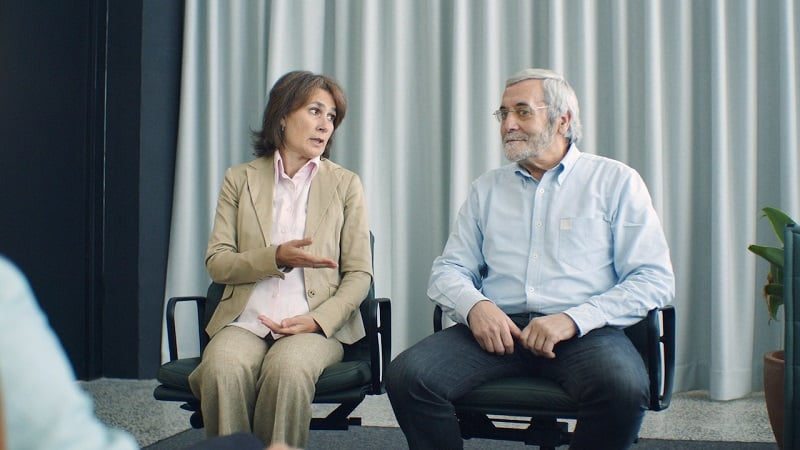A healthy marriage is built on teamwork. This same teamwork is just as important when seeking help through therapy or counseling. Marriage counseling, or couples therapy, is most effective when both partners put in equal effort to work on their relationship. It’s not about blaming or criticizing, but about building a better, stronger connection.
1. Be Open and Honest
In any relationship, it’s common to want to hide flaws or seem perfect. However, in couples therapy, being your true self is key to making progress. Sharing your thoughts and feelings might be uncomfortable, but it’s a critical step in building a better connection with your partner. If you hide parts of yourself or avoid expressing your true feelings, it can create distance in the relationship over time.
Being genuine with your partner allows for deeper intimacy and understanding. Research shows that people who are open about who they are tend to have healthier, more fulfilling relationships. Authenticity gives you and your partner the opportunity to grow closer and work through any challenges together, building a strong foundation for the future.
2. Reflect on External Influences
We are all influenced by the people around us, whether they are friends, family members, or coworkers. Sometimes, these outside influences can affect the way we view our relationship. While it’s natural to seek advice from loved ones, it’s important to be mindful of how these opinions may shape your perspective on your partner.
If someone close to you is overly critical of your spouse, it may cause you to focus more on their flaws instead of their strengths. To keep your relationship healthy, it’s essential to work as a team with your partner, not allow outside opinions to come between you.
Discuss any external influences with your therapist and, if necessary, set boundaries with people in your life who may negatively impact your relationship. By doing so, you can create a space where your partnership can thrive without unnecessary outside pressure.
3. Set Clear Goals Together
One of the best ways to make progress in couples therapy is by setting clear goals with your partner. Before your first counseling session, sit down together and talk about what you want to achieve. These shared goals will guide your therapy sessions and help you stay focused as you work through challenges.
Setting goals can also ensure that you and your partner are on the same page. For example, you may want to improve communication, find healthier ways to resolve conflict, or identify what’s causing tension in your relationship. Having these objectives in mind will give you a sense of direction and allow you to track your progress as you move forward.
4. Be Honest, Even When It’s Hard
Honesty is the foundation of any strong relationship, but it can be especially difficult during therapy sessions. A surprising number of people lie to their therapist, whether it’s to avoid embarrassment or to protect their partner’s feelings. While it may seem easier to gloss over the truth, it won’t help you address the real issues in your relationship.
In couples counseling, being truthful—no matter how uncomfortable—is essential. It may be hard to open up about certain feelings, but honesty will allow you to work on the parts of your relationship that need the most attention. Being vulnerable with your partner is the only way to truly heal and move forward.
5. Look at Your Past
Sometimes, the problems we experience in our relationships today are connected to things that happened in the past. Our early relationships, especially with caregivers, can shape how we approach love and partnership as adults. In couples therapy, it’s helpful to talk about past experiences that may be influencing your current relationship, even if these events occurred before you met your partner.
By exploring these past experiences, you can better understand your emotional needs and be more compassionate toward your partner’s feelings. Talking about the past with the help of a therapist can also help you heal from old wounds, allowing you to build a healthier, more balanced relationship in the present.
6. Explain Your Feelings and Listen to Your Partner
Communication is a key part of any healthy relationship, and this is especially true in therapy. During your sessions, take the time to explain your thoughts and feelings to your partner. It’s not just about sharing what’s on your mind, but about helping your partner understand your perspective.
Equally important is listening when your partner shares their feelings. When they talk, focus on understanding their point of view instead of getting defensive. Active listening—where you give your full attention to what they’re saying—can improve your connection and help you work through challenges together.
Show your partner that you’re engaged in the conversation by nodding or maintaining eye contact. Wait until they finish speaking before offering your thoughts or asking questions. Good communication, both in therapy and in daily life, will strengthen your bond and improve your relationship over time.
7. Ask Questions and Seek Clarification
In therapy, listening is crucial, but so is asking questions. If you’re having trouble understanding your partner’s point of view, asking thoughtful questions can provide clarity. For example, if your partner says they don’t feel loved, you might ask what specific actions or words would make them feel more appreciated.
However, it’s important to ask questions in a way that feels supportive rather than defensive. Before asking, acknowledge your partner’s feelings and let them know that you want to understand them better. This can help prevent misunderstandings and allow you both to feel heard and valued.
For example, if your partner feels unappreciated, you could say, “I’m sorry you’re feeling this way. I really want to show you more love and support—can you help me understand what makes you feel most cared for?” This approach shows that you’re committed to improving the relationship and are willing to take action based on their feedback.
Finding the Right Therapist for You
There’s no such thing as a perfect marriage, and every relationship will face its own challenges. While the tips in this article can help you strengthen your relationship, it’s also important to find a therapist who can guide you through the process. A good therapist will help you and your partner navigate difficult conversations, build better communication habits, and work through any unresolved issues.
Platforms like Talkspace make it easy to find a licensed therapist who is experienced in couples counseling. Once you find the right therapist, you and your partner can start working together to build a stronger, happier relationship through therapy.
Conclusion
Marriage counseling is most effective when both partners approach it as a team. By being open, honest, and willing to listen, you can work through challenges together and build a stronger bond. Whether it’s setting goals, reflecting on past experiences, or improving communication, the effort you put into therapy will lead to a healthier, more fulfilling relationship.
With the support of a skilled therapist, you and your partner can tackle any obstacles in your way and move toward a happier, more connected future.







